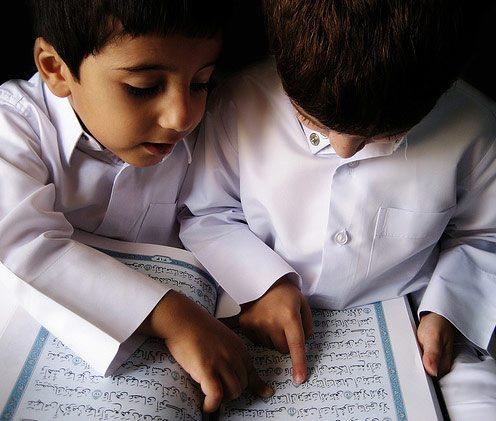Is It Obligatory to Relearn the Parts of the Qur’an That I Have Forgotten?
Hanafi Fiqh
Answered by Ustadh Tabraze Azam
Question: Assalam alaykum
Is it obligatory to relearn the parts of the Qur’an that I have forgotten?
Answer: Wa alaikum assalam wa rahmatullah,
No, it is not obligatory to relearn the parts of the Qur’an which you have forgotten.
But you should certainly take the means to at least try to relearn it, seeking Allah Most High therein, even if it doesn’t happen fully, because you will be rewarded for your sincerity, striving and noble intentions, and not according to what actually happens. This is the way of praiseworthy, higher resolve and, insha’Allah, a sign of genuineness (sidq).
We have a number of traditions (hadith) in which severe warnings have been issued for those who learn and subsequently forget the Qur’an. As a result, a number of scholars, such as Ibn Hajar al-Haytami and Ibn Nujaym, state that forgetting the Qur’an is considered to be an enormity (kabira). [see: Major vs Minor Sins, and Haram vs. Makruh Tahriman]
The Messenger of Allah (Allah bless him and give him peace) said, as part of a longer tradition, “The sins of my community were presented before me, and I didn’t see a sin more tremendous than that of a person who was granted a chapter (surah) or verse (ayah) of the Qur’an and he forgot it.” [Tirmidhi]
The Hanafis explained that “forgetting” in these contexts means to be unable to recite the Qur’an from the mushaf. Otherwise, the literal purport of the traditions is not applicable to the person who merely forgets what they had memorised. Shaykh `Abdul Ghani al-Nabulsi, the famous sage and jurist, wrote, “and this is a tremendous amount of expansiveness from Imam Abu Hanifa (may Allah Most High have mercy upon him).”
Consider praying (1) The Prayer of Need (salat al-hajah) [see: How Does One Perform The Prayer Of Need (salat al-haja)?], and (2) The Prayer for Increasing Memory [see: Supplication for Those Who Want to Memorize the Qur’an].
May Allah Most High grant us all trueness, sincerity and a means of winning unto His Divine Pleasure for eternity.
[`Ali Zada, Sharh Shir`at al-Islam (67), quoting Zahidi’s Qunya; Halabi, Ghunyat al-Mustamli Sharh Munyat al-Musalli (498); al-Fatawa al-Hindiyya; Nabulsi, al-Hadiqa al-Nadiyya Sharh al-Tariqa al-Muhammadiyya (2.621); Khadimi, Bariqat al-Muhmudiyya Sharh al-Tariqa al-Muhammadiyya (4.194)]
Please also see: How Do I Improve My Memory So I Can Memorize the Qur’an More Easily? and: Reading from the Mushaf in Prayer When You Memorized the Verses and: Struggling to Have Children: Ten Key Etiquettes of Du’a
And Allah Most High alone knows best.
قال الخادمي في بريقة المحمودية: (ومنها نسيان القرآن بعد تعلمه) من القراءة من المصحف لا عن ظهر القلب، وإن ذهب إليه بعض فلا يدخل في الوعيد من حفظ سورة مثلا، ثم نسيها إن قدر على القراءة من المصحف كما مر اهـ.
وفي الفتاوى الهندية: إذا حفظ الإنسان القرآن ثم نسيه فإنه يأثم، وتفسير النسيان أن لا يمكنه القراءة من المصحف اهـ.
wassalam,
[Ustadh] Tabraze Azam
Checked and Approved by Shaykh Faraz Rabbani
Ustadh Tabraze Azam holds a BSc in Computer Science from the University of Leicester, where he also served as the President of the Islamic Society. He memorised the entire Qur’an in his hometown of Ipswich at the tender age of sixteen, and has since studied the Islamic Sciences in traditional settings in the UK, Jordan and Turkey. He is currently pursuing advanced studies in Jordan, where he is presently based with his family.
